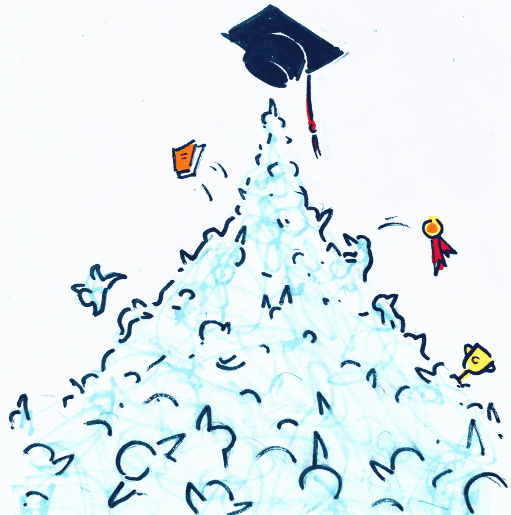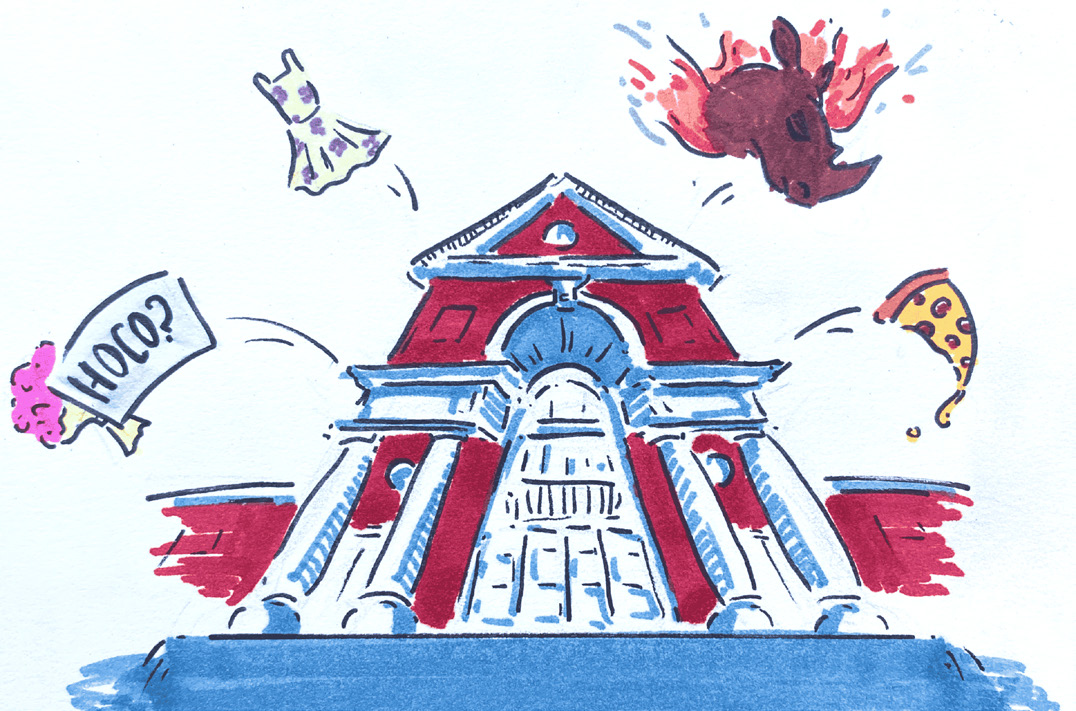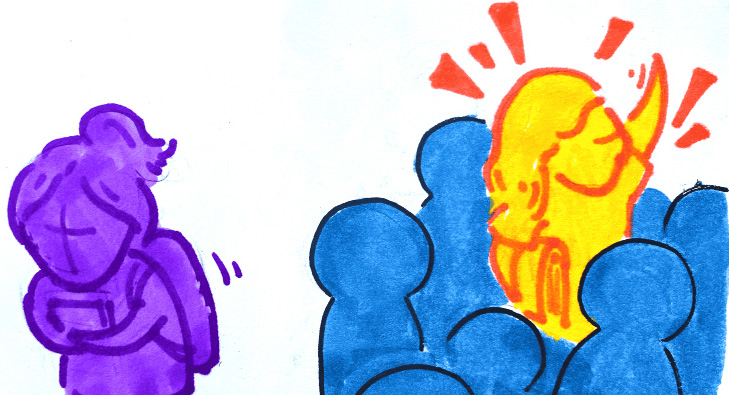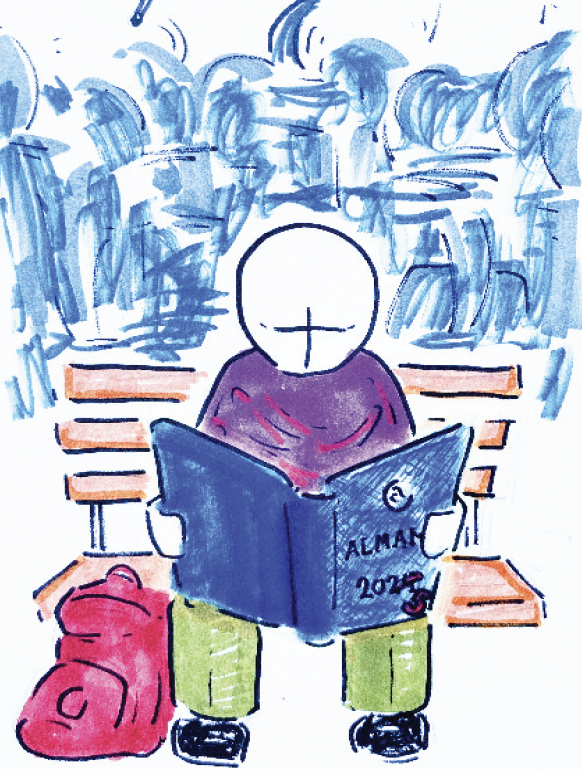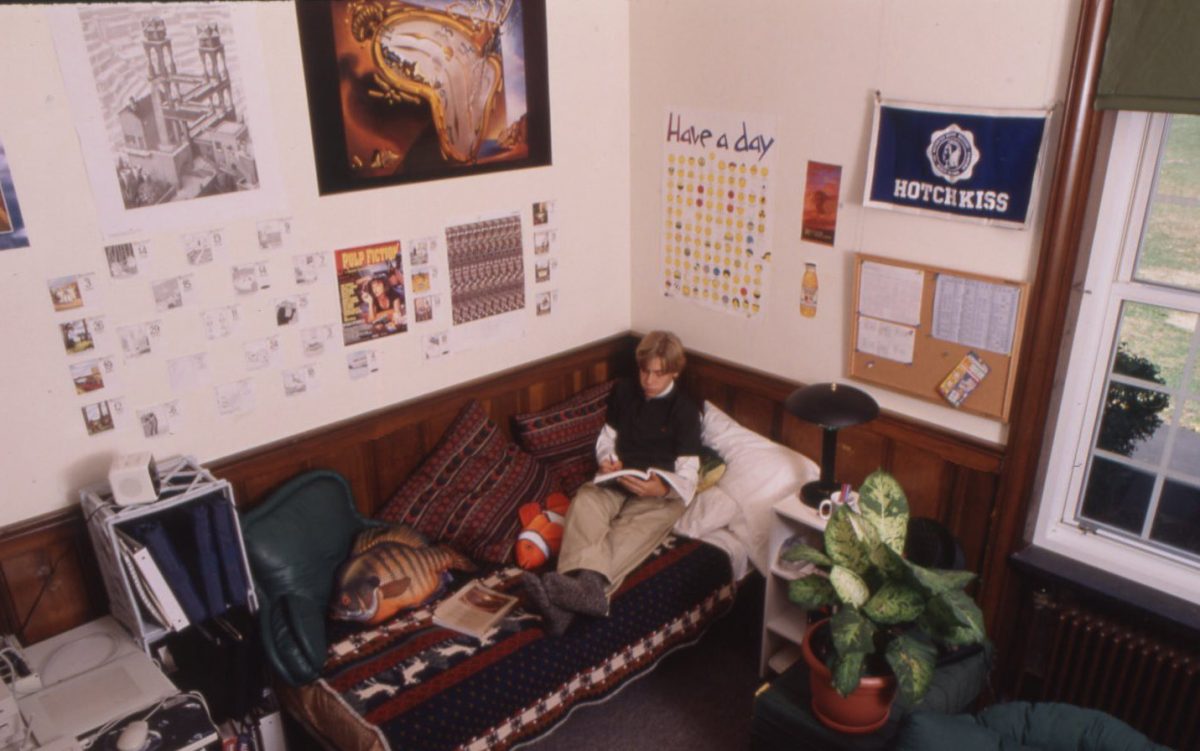I don’t always feel proud when I win an award or accomplish something. Instead, I feel relief, like I’ve only just met the expectations I’ve set for myself. At our school, where so many students excel, being “exceptional” has started to feel like the baseline, not something to celebrate.
Last Friday, as my peers walked across the stage in Elfers to accept their prizes, I felt excited for them and quietly ashamed of myself. Deep down, my own scale of success told me that winning an award isn’t an achievement but simply the minimum. In my mind, and in the minds of many students here, the standard has become achieving the maximum, and anything less feels like failure.
As human beings, we are wired this way for survival. Social psychologist Roy Baumeister and his colleagues concluded that humans have evolved for “bad to be stronger than good,” because animals with heightened sensitivity to danger, pain, and failure are more likely to survive threats.
In the past, where a rustle in the grass might have meant danger, staying on edge helped our ancestors survive. But in a high-achieving environment like Hotchkiss, our brains misapply this same instinct. Failure is not a natural part of the learning process but a threat. We aren’t running away from predators, but we are constantly scanning for the threats of our modern savannah: a lower grade than we hoped for, a classmate who seems to do more, an award we didn’t win.
An instinct to survive has transformed into an instinct to compete—to be anything but ordinary. Because we are surrounded by people who are achieving at such a high level, the “threats” feel constant. Falling behind here doesn’t mean you’ll be eaten by a lion, but somehow it feels just as urgent. The nervous system doesn’t know the difference between failing a test and being chased; the stress feels the same.
That’s why achievements often feel less like moments of joy and more like moments of relief. Winning an award doesn’t light up our brains with pride because pride fades quickly when the bar hangs so high above our heads. The expectations shift so fast that yesterday’s success is today’s standard. Instead of celebrating, we brace ourselves for the next challenge.
This is the double edge of the privilege of being at a high-achieving school. On one hand, it’s a gift to be surrounded by peers who inspire us to push ourselves. On the other hand, it’s a burden to live in a space where vigilance, comparison, and striving never turn off—where extraordinary success feels like mere survival.
So let’s learn to reflect on the moments of pride and joy, even if our minds try to downplay them.

